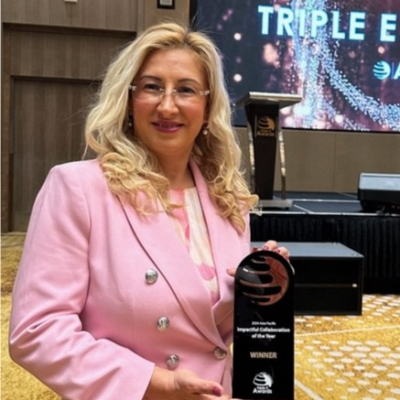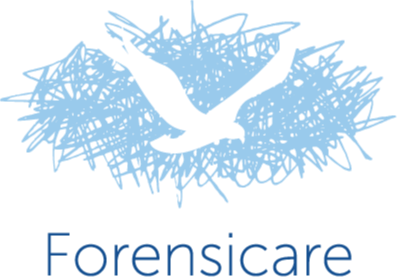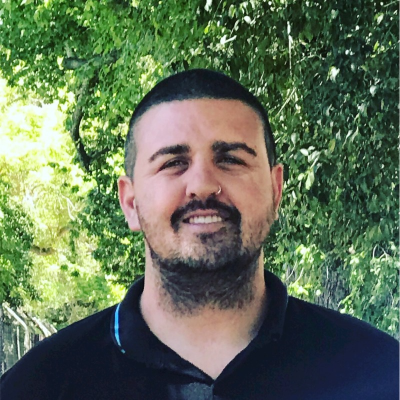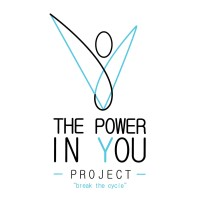Main Conference Day Two: Wednesday, 25th March 2026
Morning Session
8:30 am - 8:50 am
Registration and Morning Coffee
8:50 am - 9:00 am
Conference Day 2 Opening and Chair Remarks
Joseph Tonu -
Associate Director, Work Health Safety, Wellbeing & Security,
NSW Justice Health & Forensic Mental Health Network

Joseph Tonu
Associate Director, Work Health Safety, Wellbeing & SecurityNSW Justice Health & Forensic Mental Health Network

9:00 am - 9:40 am
Women in Correctional Leadership Leading Change and Reform in Corrections
Vanessa Hollis -
Project Director,
Queensland Corrective Services
Jackie Ashmore - Clinical Director - Adult Health Services, Justice Health, Department of Justice and Community Safety, Victoria
- potlighting the leadership journeys of women shaping the future of corrections across policy, operations, and service delivery.
- Exploring how gender-informed leadership drives cultural change, staff wellbeing, and system reform.
- Sharing strategies for navigating complex environments, influencing decision-making, and mentoring the next generation.

Jackie Ashmore
Clinical Director - Adult Health Services, Justice HealthDepartment of Justice and Community Safety, Victoria

9:40 am - 10:20 am
PANEL DISCUSSION | Health Equity Behind Bars: Embedding Preventative and Culturally Safe Care in Prison Health Systems
Jackie Ashmore -
Clinical Director - Adult Health Services, Justice Health,
Department of Justice and Community Safety, Victoria
Andrew Wiley - Prison Health Service Director for SA, Central Adelaide
Amanda Allen-Toland - Director, Aboriginal Health, Justice
• Addressing health disparities in prison populations through culturally safe and trauma-informed care models.

Jackie Ashmore
Clinical Director - Adult Health Services, Justice HealthDepartment of Justice and Community Safety, Victoria

10:20 am - 10:50 am
INDUSTRY CASE STUDY | Virtual Clinics Behind Bars – Expanding Access with Telehealth
Understand the practical steps and infrastructure needed to integrate virtual care in correctional environments.
See how telehealth reduces reliance on transport, increases access to care, and supports quicker health interventions.
Learn how to deliver consistent, culturally safe, and patient-centred care across locations—especially in regional or high-security settings.
Reserved for event sponsor
10:50 am - 11:20 am
Co-designing a National Framework for the provision of Palliative Care in Australian Prisons
Jane Phillips -
Professor Palliative Care and Head School of Nursing,
QUT School of Nursing
• Challenge: Delivering palliative care in Australian prisons is complex due to intersecting health, justice, and human rights issues, and the growing number of older prisoners with chronic illnesses.
• Approach: A six-year national co-design project engaged correctional staff, health providers, policymakers, First Nations representatives, and people with lived experience to create an equitable, culturally safe palliative care framework.
• Outcome: The resulting National Framework emphasizes trauma-informed and culturally responsive care, continuity of services, and compassionate release, aiming to make palliative care a core part of prison health across Australia
11:20 am - 11:50 am
Morning Break
11:50 am - 12:20 pm
Managing Complex Mental Health in Custody: From Containment to Clinical Care
Cathy Cooper -
Coordinator, Forensic Clinical Specialist Program,
Eastern Health
• Exploring the complexities and prevalence of mental health issues within correctional environments and their impact on care and security.
• Reviewing progressive care models that prioritize trauma-informed, clinical interventions over traditional containment approaches.
• Highlighting successful multidisciplinary collaborations and strategies that improve health outcomes and custodial safety
12:20 pm - 12:50 pm
Designing for Dignity: Supporting Inmates with Disability and Mobility Needs
• Understanding the unique challenges faced by inmates with disabilities and mobility impairments within correctional facilities.
12:50 pm - 1:20 pm
Rebuilding Youth Justice Through Therapeutic, Trauma-Informed Models of Care
Anthony M Jamieson -
PhD Candidate & Manager Youth Justice Training, Queensland,
Griffith University & Department of Children Youth Justice and Multicultural Affairs
• Unpacking the impact of trauma on justice-involved young people and the limitations of punitive approaches.
• Exploring therapeutic, culturally responsive care models that prioritise healing, development, and long-term wellbeing.
• Highlighting cross-agency collaboration and best-practice programs transforming youth justice outcomes across Australia.

Anthony M Jamieson
PhD Candidate & Manager Youth Justice Training, QueenslandGriffith University & Department of Children Youth Justice and Multicultural Affairs

Afternoon Sessions
1:20 pm - 2:20 pm
Lunch Break
2:20 pm - 2:50 pm
Breaking the Cycle — Justice Reform Through Lived Experience Leadership
Luke Anderson -
Founder,
Fair Collective
• Highlighting the impact of people with lived experience in shaping effective justice reform policies and programs.
• Exploring strategies for empowering formerly incarcerated individuals to take on leadership roles within the justice system.
• Demonstrating how lived experience leadership drives systemic change that reduces recidivism and promotes equity.
2:50 pm - 3:30 pm
From Lived Experience to Leadership: Designing Employment Pathways That Break the Cycle
Pattie Phillips -
Lived Experience Co-ordinator,
Prison Network
Amelia Pickering - Chief Executive Officer, Prison Network
Kane Nuttall - CEO, The Power in You Project
• Exploring how involving people with justice system backgrounds in program design leads to more effective employment pathways.
• Creating tailored, sustainable job opportunities that address barriers faced by justice-involved individuals.
• Demonstrating how meaningful work and leadership roles contribute to long-term rehabilitation and community integration.
3:30 pm - 4:00 pm
Reimagining Court Environments Through Lived Experience
Dr Marietta Martinovic -
Associate Professor of Criminology and Justice Studies,
RMIT University
Kiki Gill - Justice Practitioner, Beyond the Stone Walls Advisory
• Exploring how involving people with justice system backgrounds in program design leads to more effective employment pathways.
• Creating tailored, sustainable job opportunities that address barriers faced by justice-involved individuals.
• Demonstrating how meaningful work and leadership roles contribute to long-term rehabilitation and community integration.

Dr Marietta Martinovic
Associate Professor of Criminology and Justice StudiesRMIT University

























